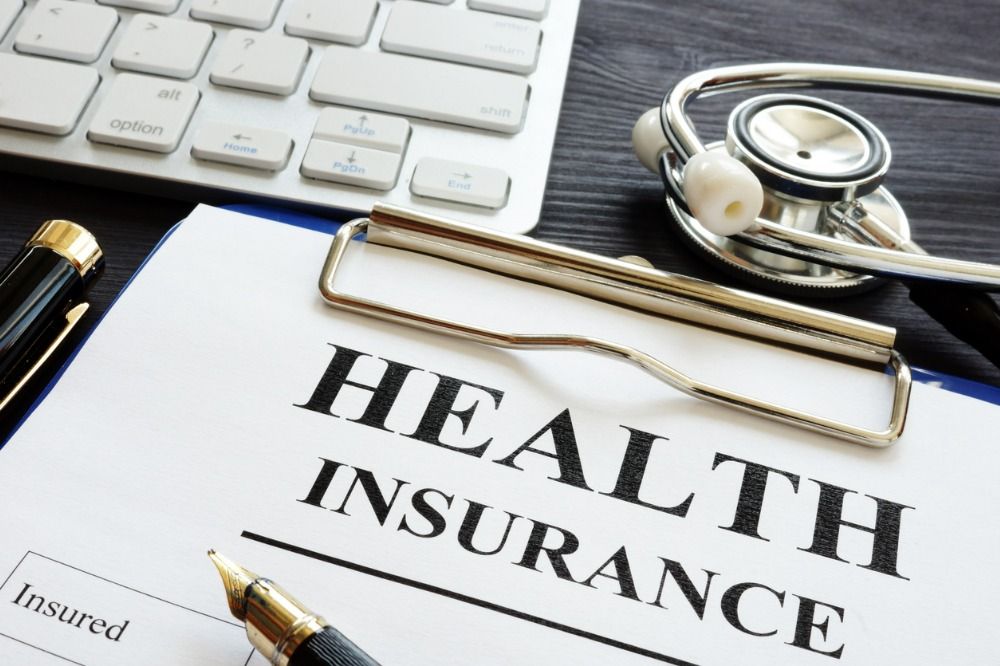Health Insurance in France for Foreigners: a detailed guide

France is famous for its high-quality healthcare system, which has become an example for many countries. Obtaining an insurance policy in the French healthcare system for foreigners can be quite a complicated procedure, but it is important to ensure access to medical care and services. Learn more about the main aspects of the French healthcare system and health insurance options for foreigners
The healthcare system in France is known for its quality and accessibility of medical care for all residents, including foreigners with temporary status in the country. The French healthcare system is based on the principles of the universal healthcare system (Puma) and complementary solidarity health insurance (CSS). Let's take a look at how it all works for foreigners staying in France.
How the French healthcare system works
Firstly, foreigners who have been granted temporary protection in France receive Assurance Maladie insurance. This insurance is part of the universal health care system (Puma) and provides coverage for all necessary medical services. This includes treatment, medications, examinations, dental services, glasses, dental prosthetics, hearing aids, psychological and medical support, and medical examinations. So, if you need medical care, you can be sure that you will be provided with all the necessary services.
However, when you make an appointment with a doctor, it is important to check his or her "secteur" - this is the principle of reimbursement for the doctor's work. Doctors are divided into "secteur 1" and "secteur 2". The services of "secteur 1" doctors are fully covered by insurance, but with "secteur 2" the cost of services may vary. Thus, it is important to consider this aspect when choosing a doctor.
Preventive medical examinations are also available for foreigners staying in France. Any person over the age of 16 who is included in the general state social insurance system in France can undergo this examination every 5 years. This helps to identify risks in time and maintain your health.
In France, you do not have to pay for medical care directly. The payment is made by the health insurance fund, and you can access "secteur 1" doctors, such as family doctors, pediatricians, dentists, gynecologists, and ophthalmologists, without a referral. For other types of medical services, tests, and medications, you need a referral from a general practitioner.
So, firstly, you need to choose a general practitioner who will serve you. Doctors in France can have a private practice or work in public hospitals and medical centers. You can sign a contract with a general practitioner, but it is not mandatory. Remember that you are not obliged to see only one general practitioner. During the first visit, the doctor will usually ask about your general health and medical history, so be prepared to tell them about it. The doctor will also provide you with referrals for necessary tests and examinations.
Features of health insurance in France
France has a universal healthcare system that covers almost every resident of the country. The main features of this system are:
1. Universal access. All French citizens and residents have the right to access medical care. This means that even people without insurance can receive emergency medical care in cases of need;
2. Compulsory health insurance. All employees in France are required to have compulsory health insurance. This system is financed through social contributions and taxes;
3. A large network of hospitals and clinics. France has an extensive system of medical institutions that operate at a high level. Doctors and medical specialists are highly qualified;
4. High quality of services. The French healthcare system is known for its high quality of services and availability of modern treatments;
5. Self-insurance patents. In France, many people also have private health insurance, which complements the compulsory insurance system.
6. Health insurance for foreigners in France
Foreigners coming to France can also take advantage of health insurance. Here is a detailed overview of the options and rules for foreigners:
European Health Insurance Card (EHIC)
If you are a citizen of the European Union, the European Economic Area, or Switzerland, you can obtain a European Health Insurance Card (EHIC). This card allows you to receive emergency medical care in France under the same conditions as local residents. It is important to note that the EHIC does not cover all types of medical services and is not a substitute for travel insurance.
Private health insurance
Many foreigners choose private health insurance for additional coverage during their stay in France. Private insurance companies offer various types of insurance, including health insurance for foreigners, which may even include travel insurance, home insurance, and more.
Compulsory health insurance for long-term stays
If you are planning an extended visit or even permanent residence in France, you will probably need compulsory health insurance. This system is funded through social contributions and taxes, and you can become part of it if you have legal resident or worker status in France. Compulsory health insurance provides access to a wide range of health services and may be required for certain types of visas and residence permits.
Health care for refugees
France also has a health care system for refugees and asylum seekers in the country. This system provides access to medical care for those who need protection and support due to persecution or other dangers in their homeland.
Calling an ambulance in France
In France, there are different numbers for calling an ambulance, and it is important to know when to use which number. In particular, the pan-European emergency number 112 will help you access the right service. If you have a serious medical situation, such as a heart attack, the number 15 - SAMU (Service d'Aide Médicale d'Urgence) - is the best choice. For police assistance, use number 17, and don't forget that the police can also provide assistance in some cases. If you find yourself in an emergency situation involving a fire or accident, then number 18 - sapeurs pompiers - will help you get fast fire and medical assistance. Be prepared for emergencies and use the right number to call for help according to your need.
Services available without health insurance in France
In France, there are certain medical services that you can get without health insurance or paying for them. Here are some of them:
Emergency care. In case of an emergency, you can go to the nearest public hospital. You do not need to have a certificate of temporary protection or a health insurance policy, just provide your passport or other identification. Some humanitarian organizations, such as Doctors Without Borders or the Red Cross Society, can also provide emergency medical care without insurance, especially for residents.
Medicines. Most medicines in France are available only with a prescription. If you do not have health insurance, it is possible to get a prescription for medicines at Red Cross stations. However, it should be noted that although prescriptions may guarantee free medicines, some pharmacies may not dispense them free of charge. Such situations should be clarified on the spot.
Services for patients with serious/rare diseases. France provides support and free services to patients suffering from serious and rare diseases. They can count on specialized medical care and treatment provided through government programs and resources.
Insurance policy coverage in France
Insurance under the universal health protection system (Puma) and the complementary solidarity health insurance (CSS) in France provides significant coverage for medical services and expenses. Covered by insurance:
1. Medical examination, including regular check-ups and medical consultations.
2. Treatment and medicines;
3. Diagnostic procedures and tests;
4. Dental services: Including fillings and crowns, dentures, and braces for children under 16 years of age;
5. Eyeglasses: Lenses for vision in certain medical cases, such as astigmatism and myopia.
6. Hearing aids and medical equipment;
7. Psychological and medical support.
How to obtain medicines in France
In France, obtaining medicines is usually done through a prescription, and this system covers various aspects. Once you have obtained temporary protection and health insurance, you need to contact an appropriate medical professional to obtain a prescription. A prescription can be issued by a general practitioner, a private doctor or a midwife. Some prescriptions may also be issued by laboratory directors or deputy directors as part of their professional activities.
The prescription must include details such as dosage, duration of treatment, and number of packaging units. To get medicines at a pharmacy for free, you need to have your prescription and insurance policy with you.
France offers free or partially reimbursed medicines for patients in need of medical treatment. The amount of reimbursement depends on the category of the drug, which is determined by social security. The more effective and expensive the drug is, the higher the reimbursement rate is.
Most medications for foreigners in France are free of charge, but some vitamins that are not mandatory must be paid for. For those who have additional health insurance, medicines are provided at no extra charge, except for optional vitamins.
Thus, the French healthcare system is known for its quality and accessibility of medical services. Foreigners staying in France can take advantage of various types of health insurance, including the European Health Card, private health insurance, and compulsory health insurance for long-term residents. It is important to have a good understanding of the terms and conditions of health insurance in order to have access to the necessary medical care and to be sure of your coverage during your stay in France.
Daria Rogova, Head of Insurance at Visit World
To move, travel or work safely in a new country, you will need health insurance. You can apply for an extended policy on our website here.
Products from Visit World for a comfortable trip:
Checklist for obtaining a visa and necessary documents in France;
Legal advice on business, medical, educational and immigration issues in France;
Travel and health insurance for foreigners in France;
Insurance for foreign students in France.
More articles on the topic:
Immigration to France: how to move for permanent residence.
Employment contracts in France: types and characteristics.
Getting a work visa to France: required documents and peculiarities of the procedure.
France immigration: a detailed guide for Ukrainian refugees in FR.
French Tech Visa: obtaining a residence permit under the Passeport Talent program.
Higher education in France for foreigners: a detailed guide.
Recommended articles
6 min
Treatment
3 min
Work
Employment in France: how an expat can find a job, labor market and work visa
Obtaining a work visa and signing an employment contract are important steps for those planning to work in France. Learn more about the important nuances of the employment procedure in this country
13 May. 2024
More details3 min
Residence permit
Tips for successfully obtaining French citizenship
France is among the most desirable countries for foreigners to obtain citizenship. The country attracts with comfortable living conditions. Find out more about what is required to obtain citizenship in France
21 Mar. 2024
More details2 min
Expats
Immigration to France: how to move to permanent residence in 2025
Migration to France has always been attractive to immigrants from all over the world. This country has a rich cultural heritage, a large number of opportunities and a friendliness towards foreigners. Find out how to legally immigrate to France in 2025: current ways of moving, requirements for foreigners, programs for students, entrepreneurs, workers and families
23 Jul. 2025
More detailsAll materials and articles are owned by VisitWorld.Today and are protected by international intellectual property regulations. When using materials, approval from VisitWorld.Today is required.
